Letter recognition Normal Tracing Letters Worksheets for 6-Year-Olds
9 filtered results
-
From - To
Enhance your child's letter recognition with our Normal Tracing Letters Worksheets for 6-Year-Olds. Tailored to support early learners, these engaging worksheets focus on building foundational alphabet skills. Each sheet provides ample practice tracing both uppercase and lowercase letters, nurturing fine motor development and confidence in early writing. Easy-to-follow instructions and fun, interactive activities make learning enjoyable, laying a strong groundwork for future reading and writing success. Perfect for at-home practice or classroom reinforcement, our worksheets are designed to make letter recognition a delightful and effective learning experience for young children.


Letter P Tracing Page
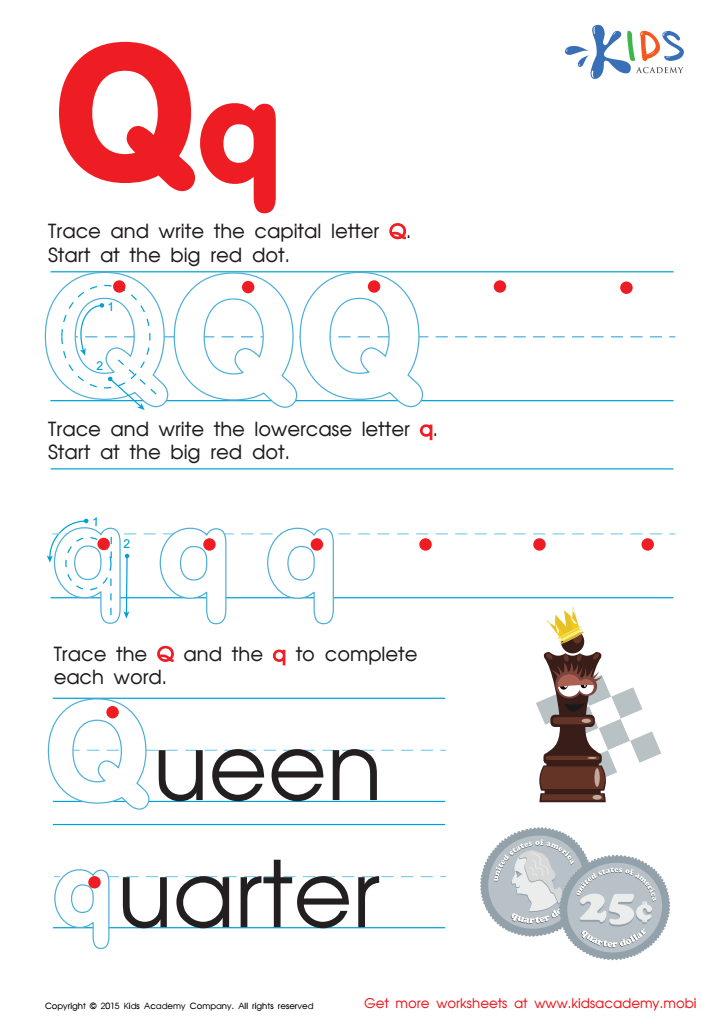

Letter Q Tracing Page


Letter H Tracing Page
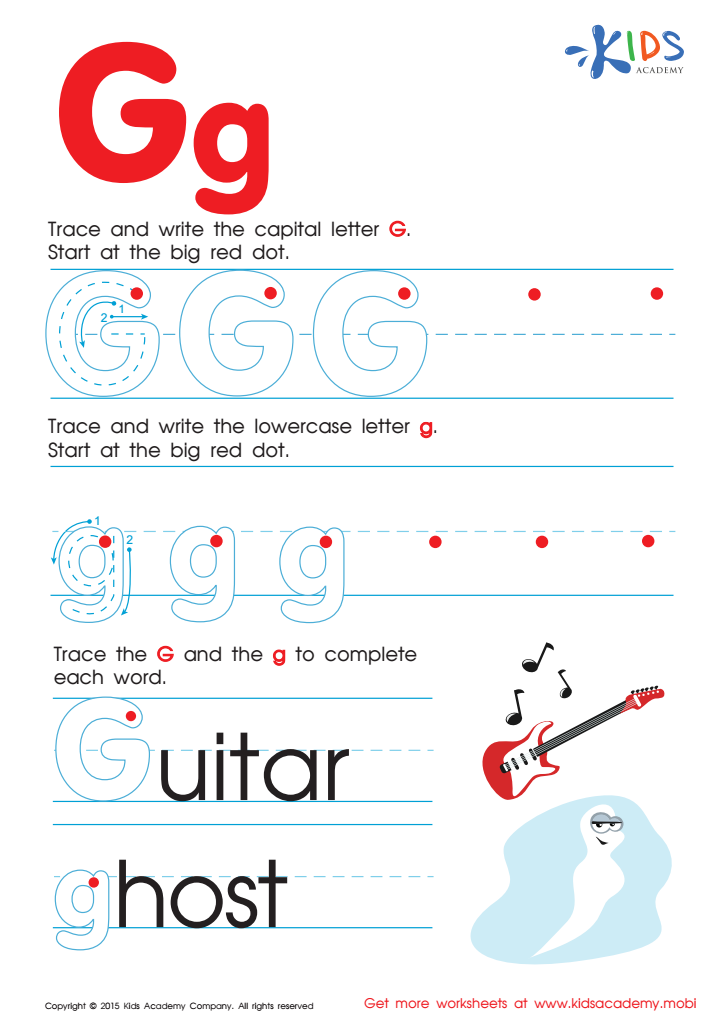

Letter G Tracing Page
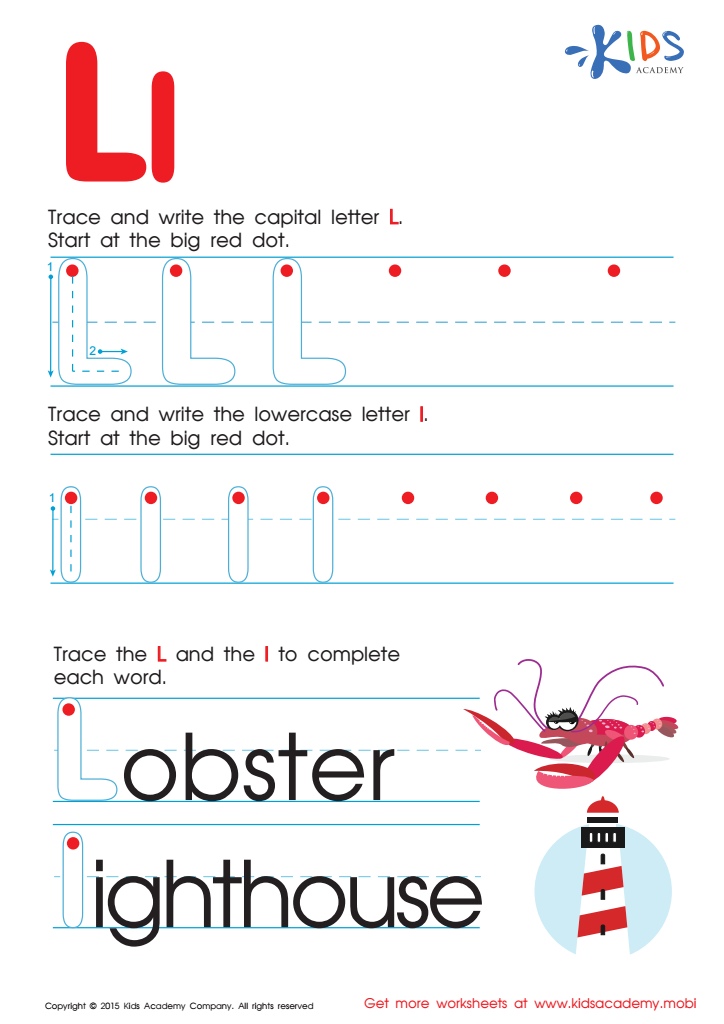

Letter L Tracing Page
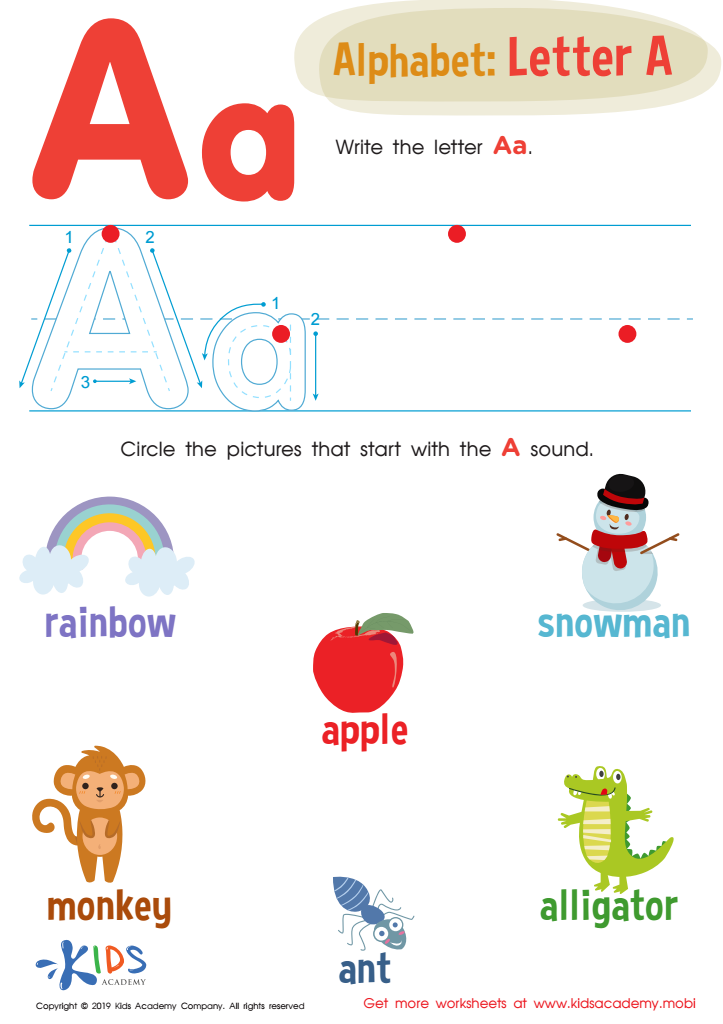

Letter A Tracing Worksheet
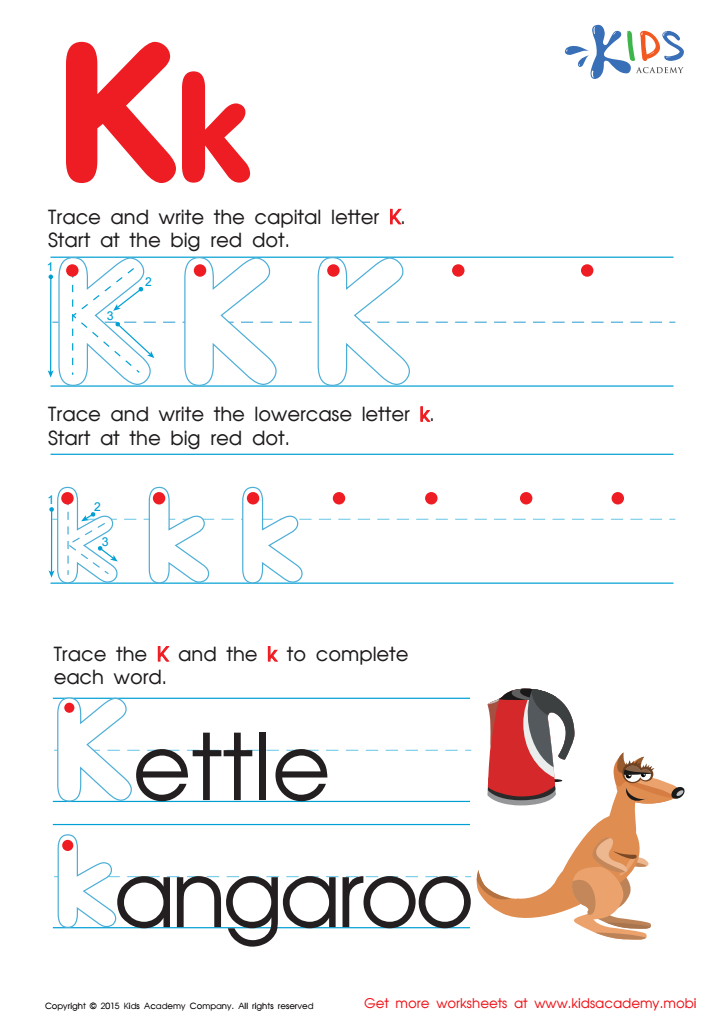

Letter K Tracing Page
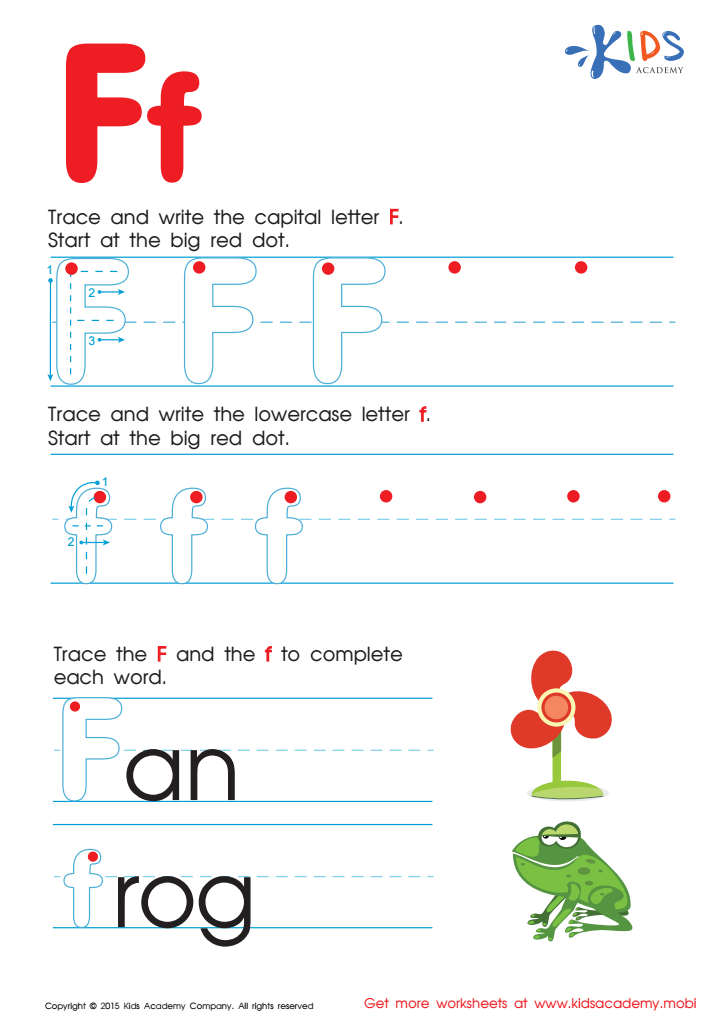

Letter F Tracing Page
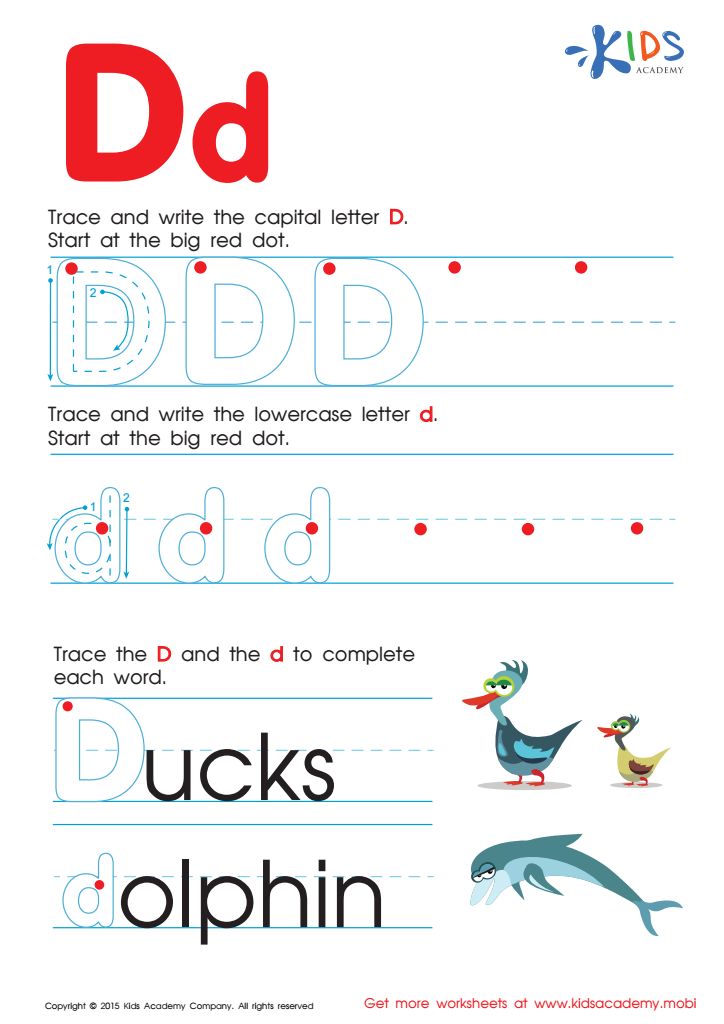

Letter D Tracing Page
Letter recognition and the ability to trace letters are foundational skills that play a crucial role in a child's literacy development. For 6-year-olds, who are often in the early stages of formal education, these skills contribute significantly to their ability to read and write.
Firstly, letter recognition allows children to familiarize themselves with the alphabet, making it easier for them to decode words when they start to read. When children can readily identify letters and know their corresponding sounds, they can begin to blend these sounds to form words, thus propelling them onto the path of fluent reading.
Tracing letters is equally important as it enhances fine motor skills, which are necessary for legible handwriting. As children practice tracing, they develop the muscle memory required to form letters correctly. This practice supports their ability to write independently, enabling clearer communication of their thoughts and ideas.
Additionally, the process of visually identifying and manually tracing letters can reinforce letter recognition through multiple senses, aiding memory retention. It also boosts their confidence, making them more likely to participate in reading and writing activities.
In summary, letter recognition and tracing are critical educational activities that support broader academic success, influencing a child’s literacy skills, confidence, and overall enthusiasm for learning.
 Assign to My Students
Assign to My Students
















